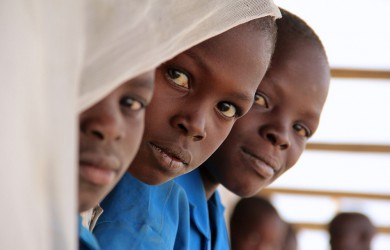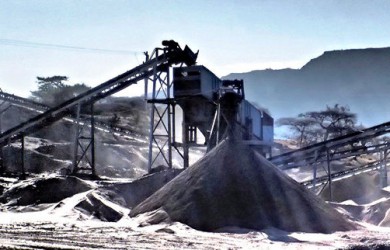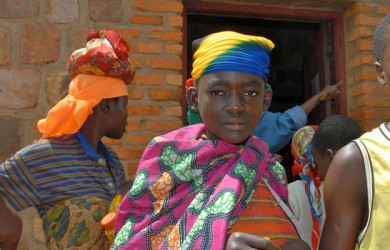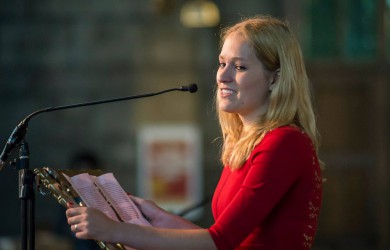‘First Impressions’ Press Review: April 2016
30 April 2016
How has the Great Recession influenced labour migration in Europe? What can Chile tell us about entrepreneurial traits and innovation? And what can struggling economies learn from the BRICS group of countries? These are a few of the questions tackled by our researchers over the last month — in two books, five journal articles, one research report, four working papers and two PhD dissertations, among others. Click here for the full list. Books ‘Labor Migration, EU Enlargement, and the...
Continue Reading →‘First Impressions’ Press Review: February 2016
02 March 2016
How will extreme weather impact our economies? Does more aid guarantee economic growth and better institutions? And does antiretroviral therapy help people with HIV/AIDS on the labour market? These are a few of the questions tackled by UNU-MERIT and its School of Governance in February 2016 — in three working papers and three journal articles, among others. Click here for the full list. Working Papers ‘On the optimum timing of the global carbon‐transition under conditions of extreme weathe...
Continue Reading →‘First Impressions’ Press Review: January 2016
03 February 2016
How do regional powers secure rare earth supplies? Is Chinese research underrated? And why do some developing countries fail to invest in social protection? Just three of the questions tackled by UNU-MERIT and its School of Governance in January 2016 — in five journal articles, seven working papers, and one research report, among others. Click here for the full list. Journal Articles ‘The structure and comparative advantages of China’s scientific research: quantitative and qualitativ...
Continue Reading →‘First Impressions’ Press Review: December 2015
01 January 2016
How does foreign direct investment shape high-tech industries in developing countries like Pakistan? What are the pros and cons of diaspora engagement in fragile countries of origin such as Iraq? How does parental absence impact the educational performance of children in West Africa? Just three of the questions tackled by UNU-MERIT and its School of Governance in December 2015 — in three journal articles, four research reports, and six working papers, among others. Click here for the full ...
Continue Reading →Putting a Human Face on Climate Change
08 December 2015
This article is part of UNU’s COP21 series featuring commentary related to the 21st Session of the Conference of the Parties to the United Nations Framework Convention on Climate Change (COP21), 30 November–11 December 2015 in Paris. ••• Millions of people worldwide are at risk for displacement resulting from sea level rise, slow-onset environmental degradation and increasing natural disasters. Although recent talks for a “climate change displacement coordination facility” captured little media ...
Continue Reading →‘First Impressions’ Press Review: November 2015
01 December 2015
Is Sino-African trade exacerbating resource dependence in Africa? How have border controls influenced migration across the Caribbean? And how has structural change shaped the economic development of the BRICS countries? Just a few of the questions tackled by UNU-MERIT and its School of Governance in November 2015 — in one book chapter, four working papers, and three PhD defences, among others. Click here for the full list. Book Chapter ‘The Diffusion of Renewable Energy Technologies ...
Continue Reading →‘First Impressions’ Press Review: September 2015
01 October 2015
What are the comparative advantages of Chinese scientific research? How important is trust in Ethiopian diaspora policies? And how do Arab countries perform in terms of technology transfer in manufacturing? Just three of the questions tackled by UNU-MERIT and its School of Governance in September 2015. Our most recent publications are detailed below including three research reports, four book chapters, and 12 journal articles, among many more. Click here for the full list. Book Chapters ‘T...
Continue Reading →‘First Impressions’ Press Review: July & August 2015
01 September 2015
How does money sent home build social capital in Burundi? How has the EU’s Seventh Framework Programme shaped the ICT sector? And how has aircraft manufacturing evolved, not only via Boeing and Airbus but also firms in developing countries? Just three of the questions tackled by UNU-MERIT and its School of Governance in July and August 2015. Our most recent publications are detailed below including two book chapters, four journal articles, and four research reports, among many more. Click ...
Continue Reading →Closing Ceremony MPP Class of 2014-2015
07 July 2015
In June each year, the closing ceremony marks the end of classes for our Master’s students in Public Policy and Human Development (MPP). Many leave Maastricht to write their thesis, do field research, start an internship or enjoy their summer holiday. The MPP closing ceremony is therefore the chosen occasion to celebrate the end of the academic year with friends and family and serves as an early Graduation Day. Students and faculty members reflect on the year gone by and the future lying a...
Continue Reading →Where Did the Year Go?
07 July 2015
Classes have ended for our Master’s students in Public Policy and Human Development and the question of many lips during the closing ceremony of the MPP Class of 2014-2015 was: “Where did the time go?” Daphne Baardman, who served as President of the programme’s student association DEMOS, looked back on an intensive but rewarding study year in Maastricht. Dear MPPers, I maybe should not say this because it is almost too obvious, but really… where did this year go? Not long...
Continue Reading →Archives
Contact
UNU-MERIT
Boschstraat 24
6211 AX Maastricht
The Netherlands
T: +31 43 388 44 00
Email: info@merit.unu.edu
Boschstraat 24
6211 AX Maastricht
The Netherlands
T: +31 43 388 44 00
Email: info@merit.unu.edu
Partner sites
© 2024 UNU-MERIT | Maastricht University













